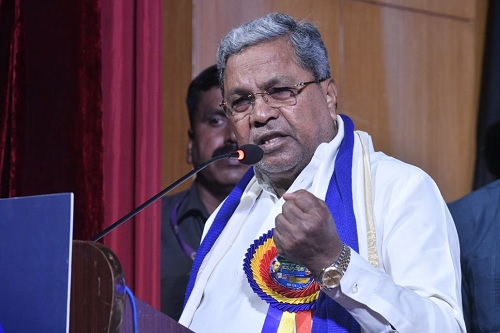Bengaluru, March 27, 2024—Energy Minister K J George said that Karnataka has taken adequate steps, chalked out all remedial measures, and is fully geared to meet the State’s energy requirements during the upcoming summer months.
The State’s power consumption per day has touched 329 MU (Million Units)—the highest ever, compared to the previous year’s consumption per day of 300 MU. Energy Minister K J George added that this year’s peak load is 17000MW+, compared to last year’s peak load of 15300MW+.
In a bid to meet the rising electricity demand, I have instructed Energy Department officials to ensure uninterrupted power is supplied to students preparing for exams and seven-hour uninterrupted power supply to farmers in the State, the Minister added.
Power generation has remained the same in the last four years. Had the level been better during the previous BJP Karnataka government, the State would not have faced such a situation today. Lack of rain has also adversely affected power generation. Power generation doubled during our first term of government. In 2013-14, the electricity generation was 14,048 MW. It had increased to 27,780 MW by 2017-18, Energy Minister K J George added.
Along with this, this year’s monsoon has been very poor. It has led to increased power consumption across all households and farmers’ irrigation pump sets, roughly translating to a 45% increase in consumption. The irrigation pump sets have a lion’s share of increased power consumption. Despite such shortfalls, the government is well prepared to handle the summer power demand and will ensure that the energy consumption of consumers, farmers, and industries is being prioritized.
To augment thermal power generation, the government has also decided to import 2.5 Lakh tonnes of coal from Indonesia and blend it with locally sourced coal. This is expected to help existing thermal plants generate 600 to 800 MW of additional energy in addition to their existing capacity of 3,400 MW and will cater to peak summer demand.

















